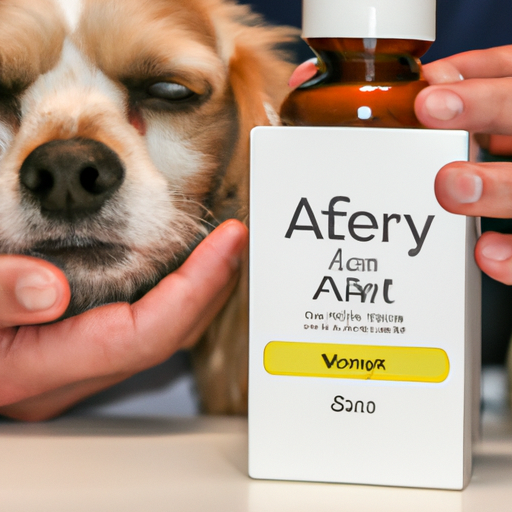As a caregiver, you’re always on the lookout for your furry friend’s well-being. Allergies can make your dog uncomfortable, but luckily, there are several treatments available. Let’s delve into some safe allergy medicines that your dog can take and how they can help alleviate your dog’s allergy symptoms.
H2: Understanding Canine Allergies
Just like humans, dogs can suffer from a variety of allergies. These allergies can be categorized into four main types:
- Food allergies: These are triggered by certain foods or ingredients.
- Flea allergies: Fleas can cause severe allergic reactions in some dogs.
- Atopy: This is an environmental allergy caused by dust mites, pollens, and molds.
- Contact allergies: These are caused by a reaction to certain substances, like certain types of plastic, fabrics, or even grass.
Typical symptoms of allergies in dogs include itching, redness, and irritation. In severe cases, they may suffer from vomiting, diarrhea, or respiratory distress.
H2: Over-the-Counter (OTC) Allergy Medicines for Dogs
Several OTC allergy medicines are safe for dogs. However, always consult with a vet before administering any medication to your pet. Here are some commonly used OTC allergy medicines for dogs:
- Antihistamines: Medicines like Benadryl, Claritin, and Zyrtec can help alleviate allergy symptoms.
- Fatty acids: Omega-3 fatty acids can help decrease inflammation and are often used in conjunction with antihistamines.
- Steroids: Steroids like cortisone are used for severe allergies. Long-term use can lead to side effects, so they’re typically a last resort.
| Medicine | Dosage | Side effects |
|---|---|---|
| Benadryl | 1 mg per pound of body weight | Drowsiness, dry mouth |
| Claritin | 0.5 mg per pound | Loss of appetite, lethargy |
| Zyrtec | 0.5 mg per pound | Vomiting, increased salivation |
H2: Prescription Allergy Medicines for Dogs
In severe cases, your vet may prescribe stronger medications. These include:
- Apoquel: This medication can provide relief from itching within 4 hours.
- Cyclosporine: This suppresses the immune system to reduce inflammation and irritation.
- Steroid injections: These are used for severe cases and provide relief for several weeks.
Remember, these medications should only be used under veterinary supervision due to potential side effects.
H2: Natural Remedies
If you prefer a more natural approach, there are several remedies available:
- Quercetin: This natural antihistamine can be found in fruits and vegetables.
- Bromelain & Papain: These enzymes can help increase the absorption of quercetin.
- Oat baths: Oats have natural anti-inflammatory properties and can provide relief from itching and irritation.
Including these in your dog’s diet or routine can provide a holistic approach to managing their allergies.
H2: FAQs
Q: Can I give my dog human allergy medicine?
A: Some human allergy medicines are safe for dogs, but always consult with your vet first.
Q: How can I know if my dog has allergies?
A: Common signs include itching, redness, and irritation. If your dog is showing these symptoms, consult with a vet.
Q: Can food allergies be cured?
A: Food allergies cannot be cured but can be managed by identifying and avoiding the triggering food.
By understanding your dog’s allergies and suitable treatment options, you can ensure they lead a comfortable and happy life. Always remember, when in doubt, consult with your vet.



